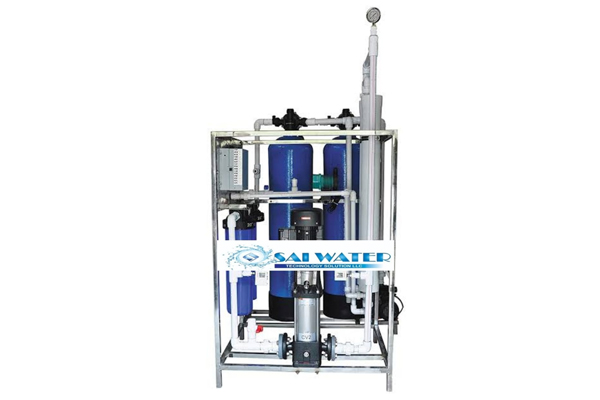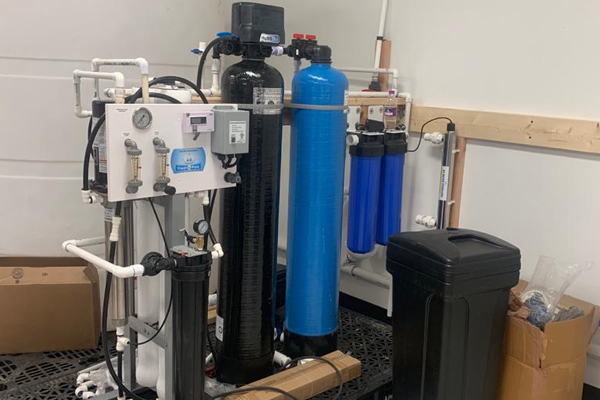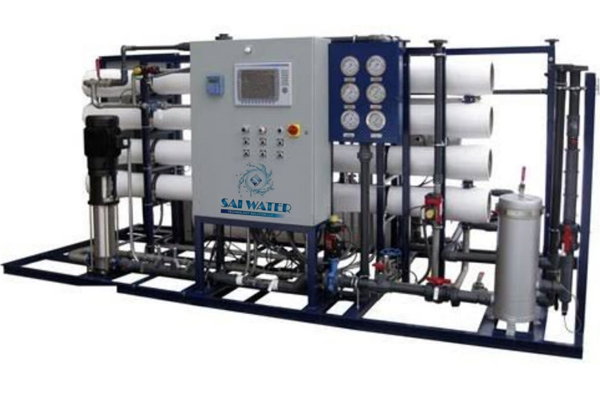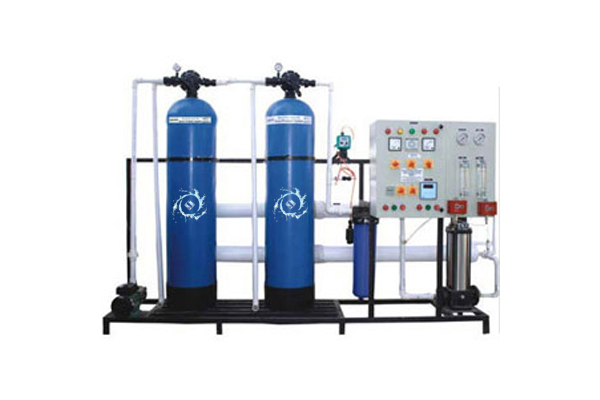Sai water gives total water treatment solutions for residential, commercial and industrial area. We deliver end-to-end supply with quantity, quality, discharge, and environmental aspects. We are improving ourselves with the most advanced technologies as a solution-oriented business. With its perfect functionality in purifying water, the suggested industrial RO plant is made available by us in the market. We follow as per the set industry standards and guidelines for its standard of quality. Moreover, the range of all products at the most reasonable rate. Sai water a name that is started in the market for its expertise to offer end-to-end solutions for water treatment. We developed a young and energetic team of having deep knowledge.
Sai Water provides a premium range of RO Plants with Ro+UV technology that work with all feed water sources. This RO water plant can remove 99.9% of bacteria and provide you with 100% safe, delicious, and germ-free healthy water.
Some features of our RO plants as follows.
- Great performance
- Long life
- Excellent capacity




Advantages of RO Plant:
- Easy to install and service
- Fully automatic system
- Safe drinking water
- Remove active and inactive bacteria
Reverse Osmosis Technology: What is it?
Reverse Osmosis (RO) is an efficient method for desalinating and removing impurities from water by passing it under pressure through a semipermeable membrane that purifies the water.
To fully comprehend the reverse osmosis process, we must first comprehend the osmosis process: Osmosis is a natural process in which a liquid, such as water, passes through a semipermeable membrane that allows some molecules, such as water, to pass through but prevents other molecules, such as salts and organic matter, from passing through.
The natural flow of liquids through a membrane occurs to balance the salt concentration between the two solutions. The liquid flows from a low concentration solution, such as freshwater, to a high concentration solution.
How RO Plants Operates Using Reverse Osmosis Technology:
Leading RO plant manufacturers like Sai Water provide various systems tailored to specific industrial needs. These plants utilize reverse osmosis technology to purify water, Here’s a breakdown of the process:
1. Pre-treatment:
Raw water enters the plant and undergoes pre-treatment to remove large particles like sediment, chlorine, and organic matter. This protects the RO membrane from clogging and damage. Common pre-treatment methods include:
-
- Sediment filters: Capture sand, dust, and rust.
- Carbon filters: Absorb chlorine, taste/odor-causing compounds, and some organic contaminants.
- Antiscalant dosing: Prevents mineral build-up on the membrane.
2. High-pressure pumping:
After pre-treatment, the water is pressurized by a high-pressure pump. The pressure applied varies depending on the level of contamination and desired level of purification.
3. Reverse osmosis membrane:
The pressurized water then flows through a semi-permeable membrane. This membrane allows only water molecules to pass through, while rejecting dissolved salts, minerals, and other impurities. The purified water, called permeate, is collected on the other side of the membrane. The concentrated stream of rejected impurities leaves the system as waste or may be further treated in some cases.
4. Post-treatment (optional):
Depending on the desired water quality, the permeate may undergo further treatment like:
-
- Deionization: Removes remaining ions for high-purity applications like electronics manufacturing.
- Mineralization: Adjusts mineral content for taste and health benefits.
Key considerations:
- Membrane selection: Different membrane types are used based on the specific contaminants and desired purity level.
- System configuration: Industrial RO plants can have multiple stages with additional membranes for higher rejection rates.
- Energy consumption: High-pressure pumping requires significant energy, so optimizing efficiency is crucial.
- Waste management: The rejected stream with concentrated impurities needs proper disposal or treatment.
Overall, industrial RO plants offer a versatile and efficient way to purify water for various industrial needs. Their effectiveness depends on careful design, operation, and maintenance to ensure optimal performance and minimize environmental impact.





